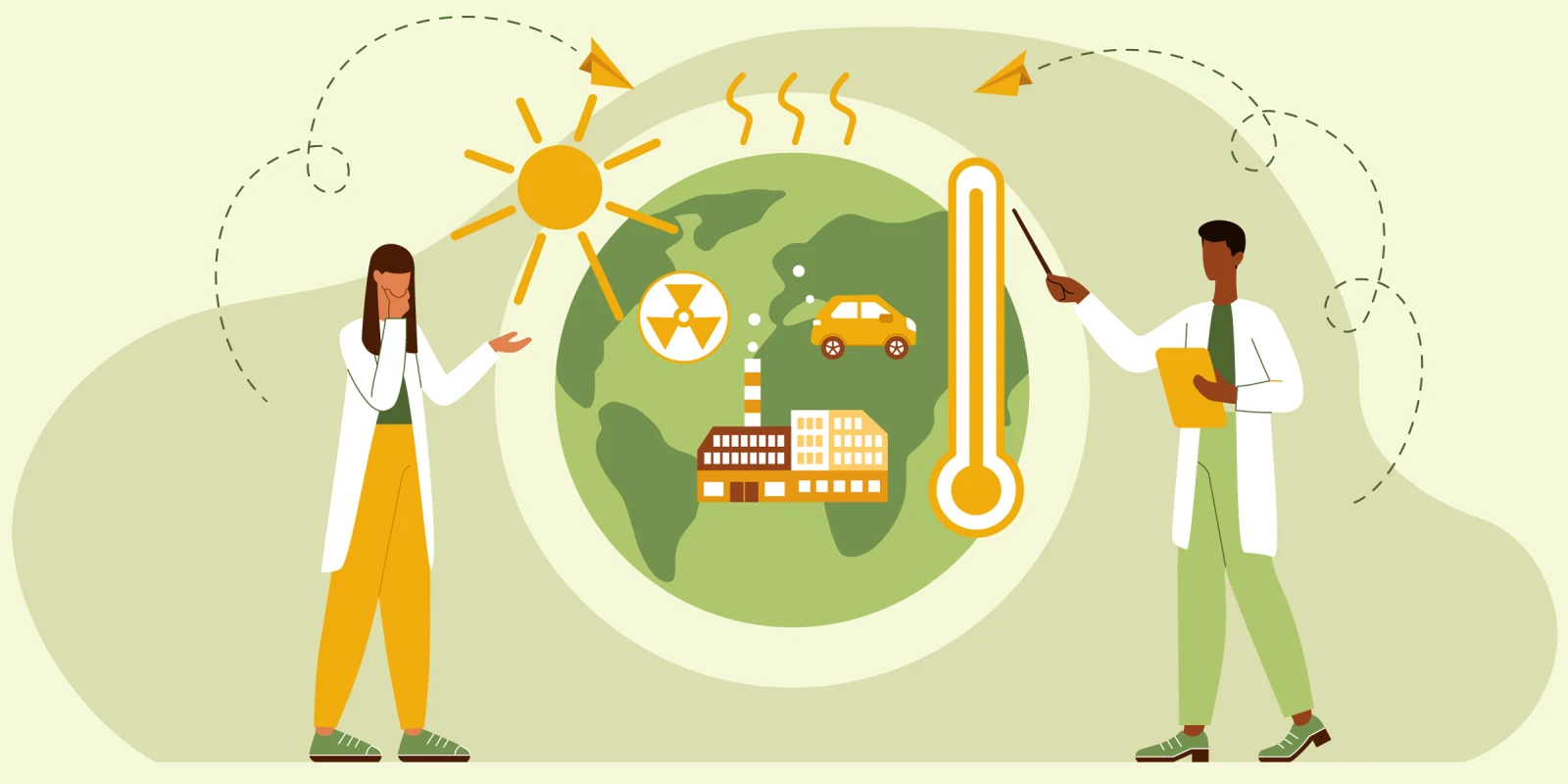Recent weather patterns, including Europe’s record-breaking winter heat as well as detrimental flooding and storms in the western U.S., are further indications that we are in the midst of the greatest existential threat in history. Devastating effects are being felt across the globe on a daily basis, and there are a multitude of objective measures proving climate change is actively occurring and likely worsening. According to the Intergovernmental Panel on Climate Change, the “scientific evidence for warming of the climate system is unequivocal.” Due to anthropogenic carbon emissions, the global temperature has risen approximately 1 degree Celsius since the late 1800s, leading to a cascade of negative outcomes such as melting icecaps, altered weather patterns, and manipulated water cycles, which have caused catastrophic levels of damage. Forecasts for the coming decades are worse, with current projections demonstrating unprecedented destruction to ecosystems across the planet if greenhouse emissions are not drastically curbed.
Not enough attention is given, however, to the plethora of negative health effects linked to climate change which toward the end of this century are projected to cost more than two hundred billion dollars globally every year. The adverse effects brought on by environmental changes will be widespread and non-discriminate. Even individuals who are healthy at baseline will be at greater risk for developing disease. Increased environmental temperatures have been linked to increased differentiation in the methylated regions of human genomes, which will likely lead to increased rates of cancer, particularly of the lungs and skin. The increased CO2 in the atmosphere has been linked to prolonged pollination periods as well as increased potency of pollen allergens. Pollen is known to be pro-inflammatory and a trigger for many people with allergies and asthma. From a cardiovascular standpoint, there is a well-defined U-shaped curve between temperatures and adverse cardiac event outcomes: temperature extremes on either end are linked to greater cardiac disease. Levels of anxiety and depression in younger populations are increasing, and more than half of individuals between the ages of 16 and 25 polled in a 2021 survey said they believe humanity is doomed, showing a severe psychological toll on the population.
Yet despite the overwhelming evidence that global warming should be a concern for medical professionals of all specialties, few medical schools have integrated the topic into their core curricula. Some, like Stanford University School of Medicine and my own medical school — the University of Texas at Austin Dell Medical School — offer elective courses. Others, such as the University of Illinois and the University of Minnesota, have started integrating components into lectures for their required classes. But only a handful, like the University of Colorado and the University of California San Francisco, have designated courses about climate change and its associated health effects that are mandatory for their students. With nearly 200 allopathic and osteopathic medical programs in the U.S., this represents a dismal proportion of schools teaching about the connection between global warming and health.
Accordingly, an informal survey of 28 attending and resident physicians and 80 medical students at the University of Texas conducted by the author utilized Likert scales to gauge perceived knowledge of climate change and its associated health impacts as well as desire to learn more about these topics. Nearly 100% of attendings and residents and 86% of medical students answered at least “somewhat agree” to the statement “I would like to learn more about the health impacts of climate change.” In addition, 75% of attendings and residents and 65% of medical students answered at least “somewhat agree” to the statement “I believe US medical schools (undergraduate medical education) should include a mandatory curriculum on health impacts of climate change.” Only 57% of total respondents answered at least “somewhat agree” to the statement “I am knowledgeable about the health impacts of climate change.” These results show the medical community’s willingness to learn more about this topic and the desire to ensure it is properly addressed in our education. The clear knowledge gap among students should be addressed so that future physicians can better handle the climate-related health challenges that will quickly become more prevalent over the coming years.
Increasingly, medical schools are recognizing the need to teach students about environmental health, including global warming. But changes to the curriculum are gradual and sporadic. This piecemeal approach to addressing global warming in medical training is unacceptable in the face of a looming crisis. The Association of American Medical Colleges should take immediate action to incorporate the subject into national education requirements so future clinicians can embrace their role in the fight against climate change. The health of our patients, communities, and ultimately our world is at stake.
How would you include climate change in curricula?
Dr. Lisa Doggett is a family physician in Austin, Texas. She is co-founder of Texas Physicians for Social Responsibility (www.texaspsr.org) and author of a memoir about her transition from doctor to patient with multiple sclerosis (seeking publication).
Image by LollyKat / Shutterstock






